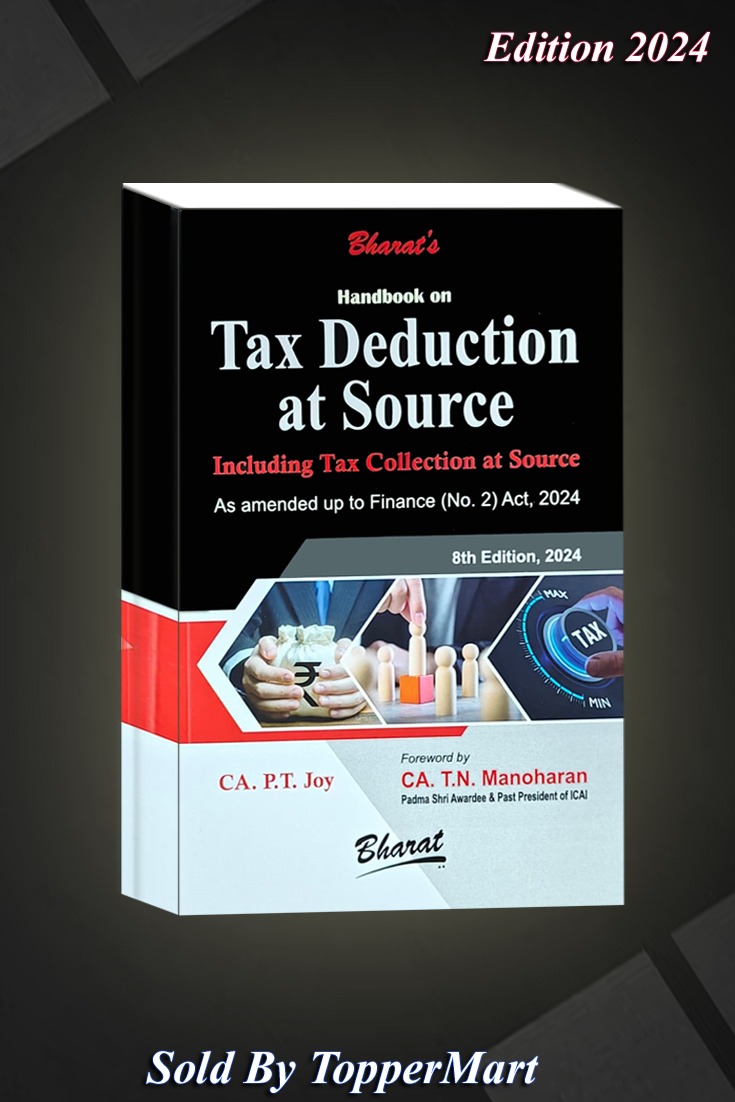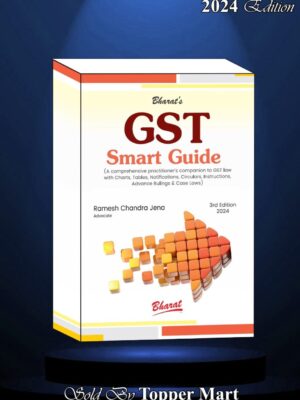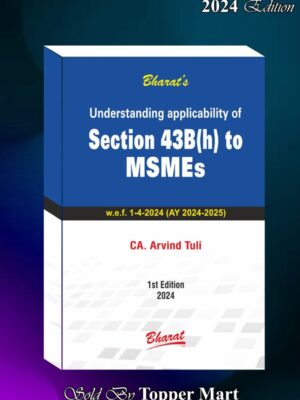₹750 Original price was: ₹750.₹599Current price is: ₹599.
🔥 4 items sold in last 7 days
TAX DEDUCTION AT SOURCE -TDS INCLUDING TCS EDITION 2024
| Authors | CA P.T. JOY |
|---|---|
| Binding | Paperback |
| Edition | 2024 |
| HSN Code | 49011010 |
| ISBN | 9788119565788 |
| Publisher | BHARAT LAW HOUSE |
Certainly! Here’s a comprehensive overview of TDS (Tax Deducted at Source) and TCS (Tax Collected at Source), including their descriptions and implications.
### TDS (Tax Deducted at Source)
**Definition**: TDS is a tax collection mechanism under the Income Tax Act in India. It requires the deductor (the person making the payment) to deduct tax at the source of income before making the payment to the payee (the recipient of the income).
**Key Features**:
– **Applicability**: TDS applies to various payments such as salaries, interest on securities, commissions, rent, and professional fees.
– **Rates**: The rate of TDS varies based on the type of payment and is specified by the government.
– **Deposit**: The deducted amount must be deposited with the government within a specified time frame.
– **TDS Certificate**: The deductor must provide a TDS certificate to the payee, detailing the amount deducted and deposited.
**Purpose**:
– Ensures timely collection of tax.
– Reduces the chances of tax evasion.
– Simplifies the tax collection process.
### TCS (Tax Collected at Source)
**Definition**: TCS is a tax collection mechanism where the seller collects tax from the buyer at the time of sale of certain specified goods. The seller is then responsible for depositing this tax with the government.
**Key Features**:
– **Applicable Goods**: TCS is applicable to specific categories of goods, including:
– Alcoholic liquor for human consumption
– Tendu leaves
– Timber
– Scrap
– Minerals like coal and iron ore
– Any other goods specified by the government.
– **Rates**: The TCS rates vary depending on the type of goods sold.
– **Deposit**: The collected TCS must be deposited with the government within a specified time.
**Purpose**:
– Ensures the government collects tax at the point of sale.
– Reduces tax evasion in transactions involving specified goods.
| Authors | CA P.T. JOY |
|---|---|
| Binding | Paperback |
| Edition | 2024 |
| HSN Code | 49011010 |
| ISBN | 9788119565788 |
| Publisher | BHARAT LAW HOUSE |
₹1,495 Original price was: ₹1,495.₹1,050Current price is: ₹1,050.


₹1,250 Original price was: ₹1,250.₹999Current price is: ₹999.
Related products
BHARAT’S GST SMART GUIDE 3RD EDITION 2024
🔥 7 items sold in last 7 days
SENGUPTA’S CONSUMER PROTECTION ACT, 2019
🔥 4 items sold in last 7 days
DELHI HIGH COURT (ORIGINAL SIDE ) RULES, 2018 EDITION 2024
🔥 5 items sold in last 7 days
BHARAT’S FEMA & FCRA INCLUDING FDI POLICY/ DIRECT LISTING SCHEME EDITION 2024
🔥 4 items sold in last 7 days
LAW OF FACTORIES IN UTTAR PRADESH EDITION 2024
🔥 2 items sold in last 7 days
LAW RELATING TO CBI & ED WITH LATEST CASE LAW EDITION 2024
🔥 2 items sold in last 7 days
BHARAT’S UNDERSTANDING APPLICABILITY OF SECTION 43B(h) TO MSMEs 1ST EDITION 2024
🔥 6 items sold in last 7 days
A TO Z OF LAW ON BAILS UNDER NEW CRIMINAL LAWS 2024
🔥 6 items sold in last 7 days
MULLA’S HINDU LAW 25TH EDITION 2024
🔥 3 items sold in last 7 days
MEDIA LAW ( Including Right to Information Act) EDITION 2024
🔥 5 items sold in last 7 days











